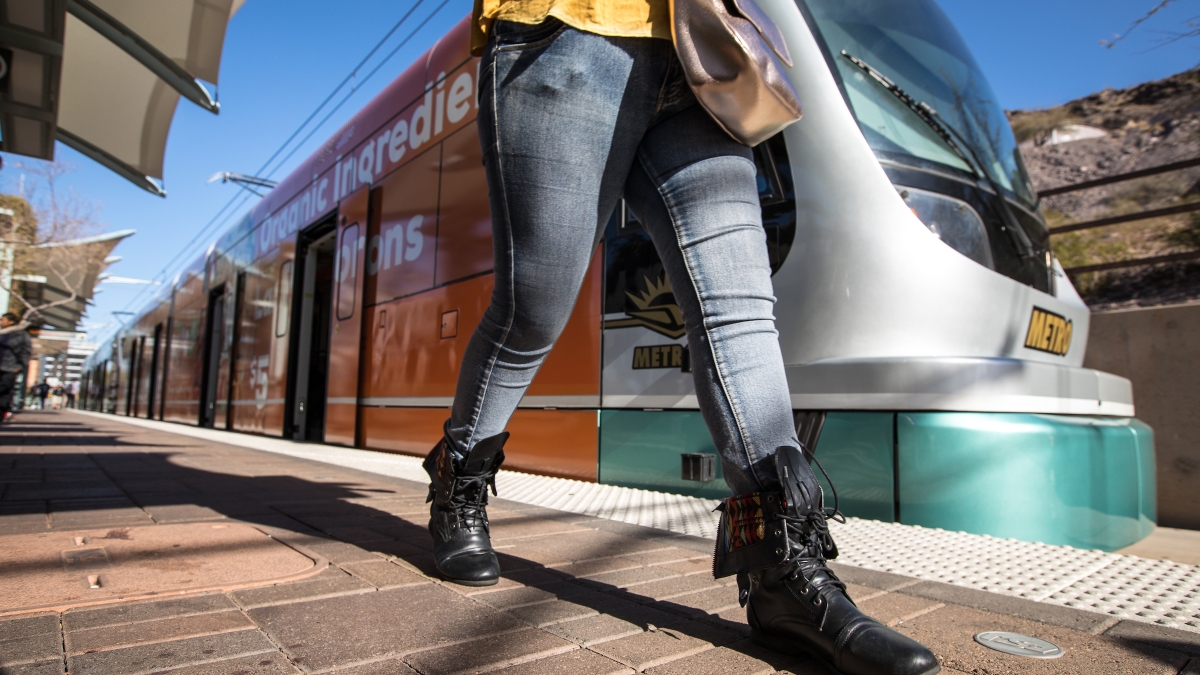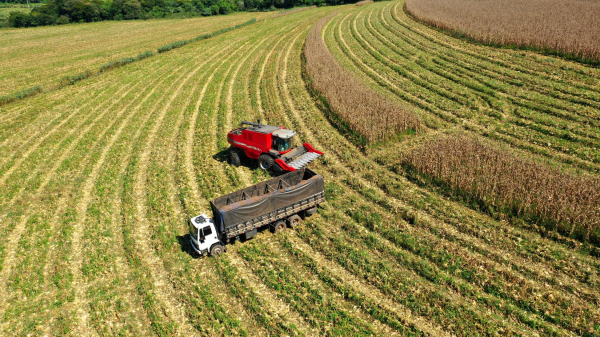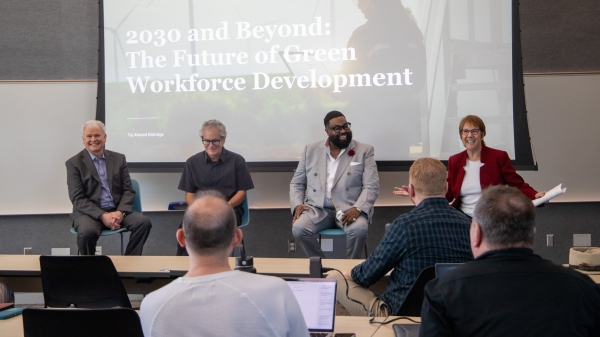Bikes, trains and no automobiles: First-ever Day Without Cars a success for ASU

If you happened to notice more maroon and gold than usual Tuesday on Tempe's bicycles, trains and buses, it wasn't a coincidence.
As part of a coordinated effort to further sustainable transportation efforts, nearly 400 Arizona State University students and staff members signed a pledge to take an alternate, non-single occupancy vehicle mode of transit to campus on March 27.
"I think there’s a lot of potential to continue to encourage sustainable transit use beyond this event, which is really meant to just be a pilot," said Lesley Forst, program manager at ASU's University Sustainability Practices. "We hope to run similar events like this one in future semesters."
University Sustainability Practices anticipates Day Without Cars becoming an annual event after Tuesday's success. Assisting in those efforts was a weeklong tabling event held March 19–23, which featured volunteers at on-campus parking structures busting transit myths and providing transportation guidance ahead of Tuesday's event.
Emmery Ledin, who helped lead the efforts for the event on behalf of the Staff Sustainability Committee, notes that sustainability isn't the only gain for those who start ditching their cars.
"Soon, at least on the Tempe campus, we will have less and less space for personal vehicles and parking for those vehicles," Ledin said. "So there are other benefits to taking alternative modes of transportation that extend beyond environmental sustainability."
Some Sun Devils who took part in Tuesday's event shared their stories using the #DayWithoutCars hashtag, which earned Sun Devil Rewards points for participants.
We asked Sun Devils how they get around the Tempe campus, and it turns out, no cars are needed. #DayWithoutCars. #FutureSunDevil pic.twitter.com/Mroe958xDi
— ASU Admissions (@FutureSunDevils) March 27, 2018
This initial Day Without Cars was targeted mainly at ASU staff members, as 75 percent of staff drive single occupancy vehicles (student use is about 28 percent). They also travel to campus five days a week and often go longer distances than students, making their carbon footprint about three times that of the average student.
"ASU has a goal to be carbon neutral from transportation by 2035, and right now, commuting contributes about 26 percent of our total GhG emissions," Forst said. "If we can get more staff to try sustainable transit options, even if it is only a few times a week, we could potentially have a significant impact on reducing our carbon emissions as an institution, not to mention the added benefits of reducing traffic congestion and air pollution."
The university's Day Without Cars served as a precursor to Earth Month, which will be recognized at ASU through various competitions and events.
More Environment and sustainability

ASU scientist studies how bans, regulations on food technology affect consumer acceptance, perceptions
How do people process scientific developments with outside influences, warnings, biases and others’ opinions filtering in? That’s the question Caitlin Drummond Otten, environmental social scientist…

ASU team's research leads to new law protecting mobile-home dwellers
Arizona Gov. Katie Hobbs signed a law earlier this month that guarantees mobile-home owners’ right to install cooling measures, thanks in large part to the work of an Arizona State University team.…

ASU event discusses hopeful future for a decarbonized economy
The economic landscape and jobs market are changing faster than ever, with cutting-edge technologies, workplace adaptations and evolving industries driving the need for transformation across the…